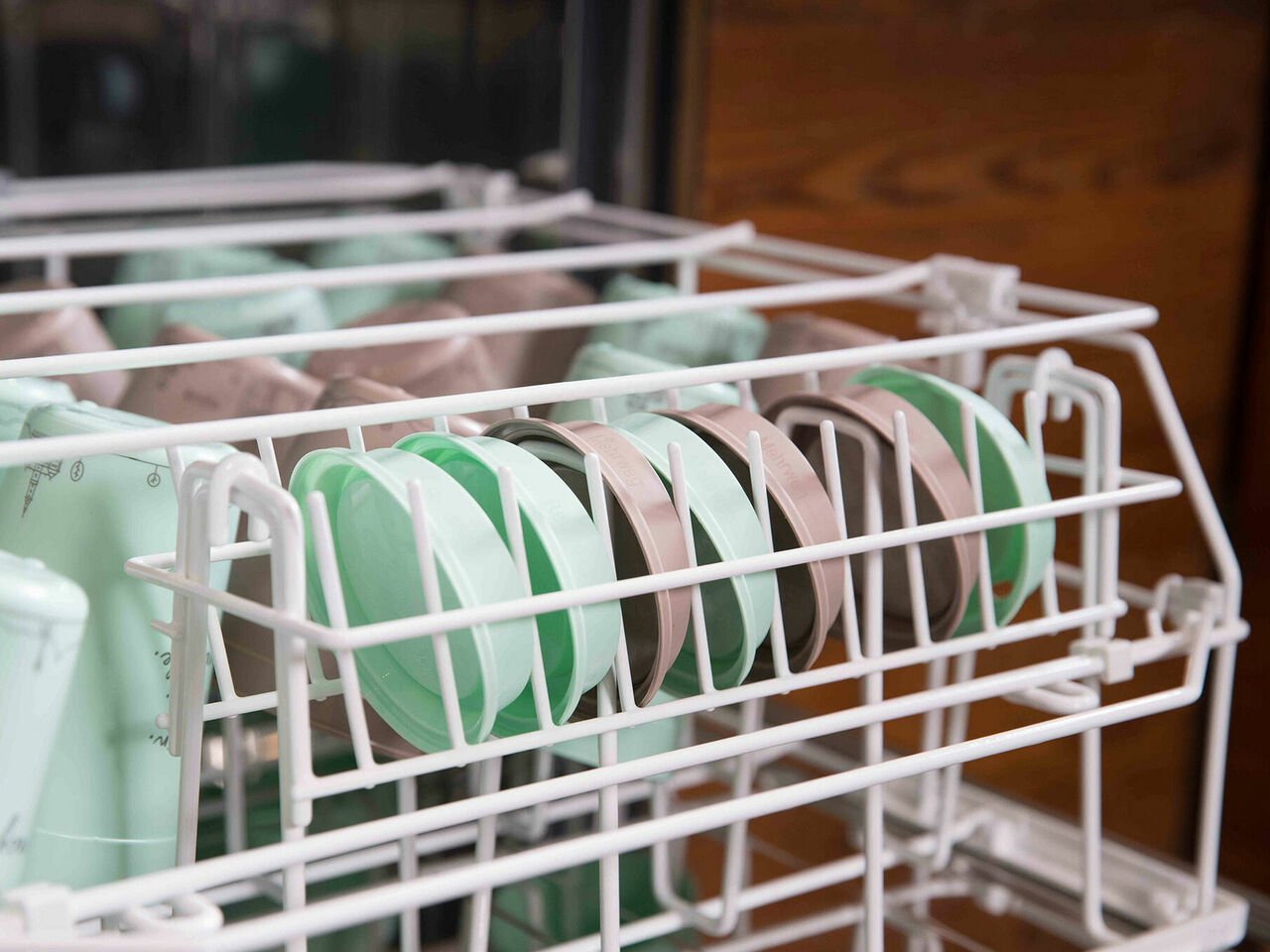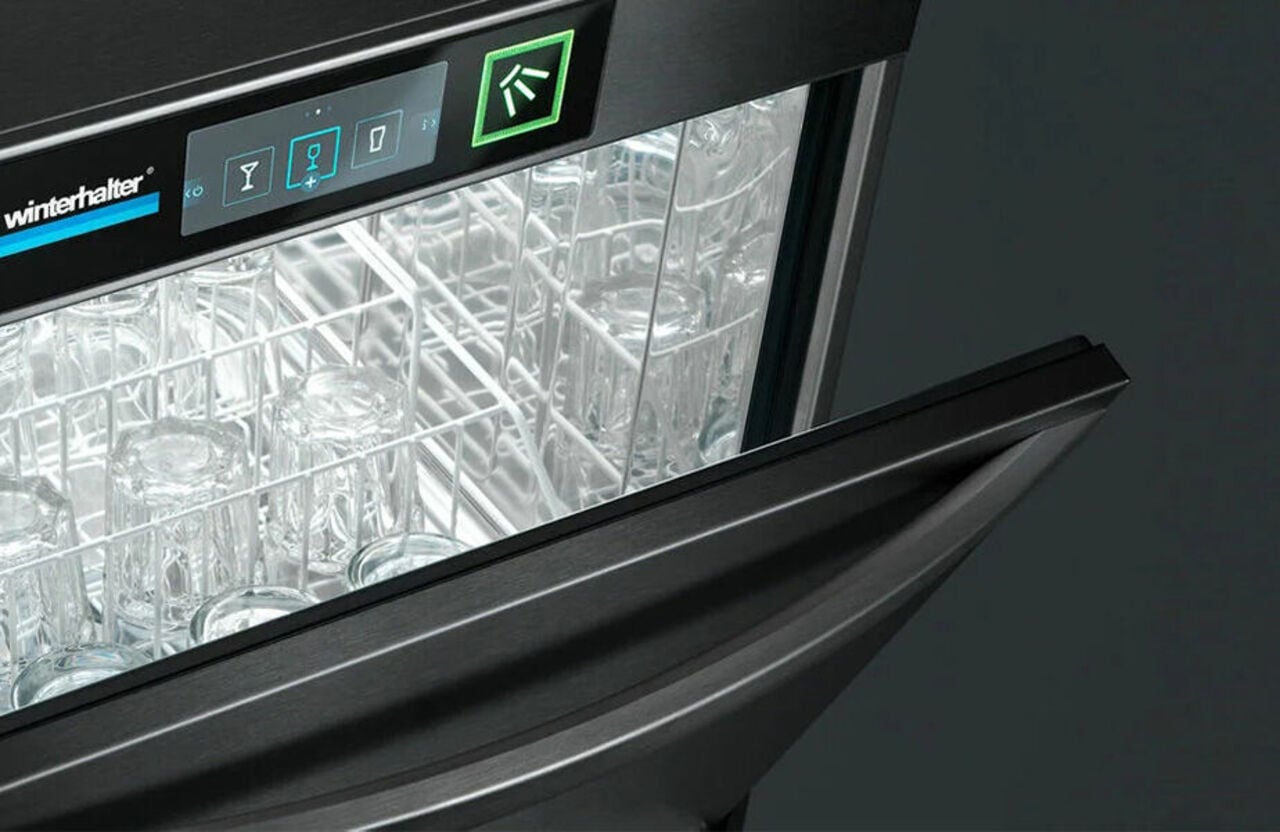
Mandatory reusable packaging system in the foodservice industry 2023
The mandatory reusable packaging system has been in force since 1 January 2023. Foodservice establishments that offer take-away food and beverages must now also offer their customers reusable packaging as an alternative to single-use packaging. This article explains exactly what this means and outlines the obligations and the exceptions to the rule.
1. What is the mandatory reusable packaging system for the foodservice industry?
The mandatory reusable packaging system for the foodservice and food trade industries stipulates that foodservice businesses offering a take-away service (take-away food and beverages) must offer their customers reusable alternatives to single-use packaging from 1 January 2023. The mandatory reusable packaging system only applies to businesses that have a sales area of over 80 m² and more than 5 employees. For more information on the assessment bases, see point 3.
The rules are based on guidelines that apply to the whole of Europe and must be implemented in all EU member states. The basis is the Single-Use Plastics Directive (EU 2019/904) of the European Parliament and of the Council of 5 June 2019 on reducing the impact of certain plastic products on the environment. Among other things, it stipulates that member states are obliged to implement measures for an ambitious and sustained reduction in consumption of certain single-use plastic packaging.
2. Which packaging is affected by the mandatory reusable packaging system?
The mandatory reusable packaging system refers to packaging for food that is usually consumed directly from the container without further preparation – either on site or away from home as a take-away meal or take-away beverage. In addition to the type of use, material constitution also plays a role. The rule applies to food packaging made wholly or partly from single-use plastic.
Single-use plastic cups are a special case. A reusable alternative must always be offered in their place – regardless of the material they are made of. All other non-plastic, single-use aluminium or paper containers are exempt from this and do not require a reusable alternative to be offered. These include, for example, pizza boxes, chip trays, paper bags for fish & chips and paper wrappers for sandwiches.
Note: For example, if a take-away coffee is sold in different sizes (S, M, L, XL), reusable plastic cups must be kept in stock for each size offered. And a 100 per cent reusable variant must be offered at all times – a reusable plastic cup or a reusable bowl with a single-use lid is therefore not permitted.
3. Who does the mandatory reusable packaging system apply to in the foodservice industry?
The mandatory reusable packaging system applies to all foodservice establishments that have a sales area of more than 80 m² and more than 5 employees if they offer take-away food and drinks and package them prior to sale. The German Packaging Act refers to these businesses as “final distributors”. The regulation mainly affects restaurants, bars, cafés and canteens. However, it also affects fast-food outlets, catering companies, food trucks, retailers that have salad bars, as well as food traders such as butchers or bakers – if they sell food at the “hot counter” or prepare it for take-away. Delivery services must also offer their customers reusable solutions if they prepare the food themselves. If, like Lieferando, they only provide transport, they are exempt from the mandatory reusable packaging system. They can, of course, offer reusable packaging to their customers as a voluntary service.
4. What other obligations are associated with this?
There are a number of additional obligations for businesses within the framework of the reusable packaging requirement, firstly, with regard to pricing. The reusable variant must not be more expensive than the same product in single-use packaging. Furthermore, there is a duty to inform: Customers must be clearly informed of the reusable alternatives at the point of sale – for example, via notices placed on signs, displays or posters. Delivery services must place a corresponding notice on flyers, on their website or on social media channels. And there is an obligation to take back the packaging – reusable containers must also be taken back. However, this only concerns the containers that the company has issued. NOTE: Businesses that are subject to the mandatory reusable packaging system may voluntarily fill containers brought in by customers – however, there is no obligation to do so, as reusable containers are already offered as an alternative to single-use packaging.
5. What is there to consider in terms of hygiene with the mandatory reusable packaging system?
It is important that the generally applicable rules of hygiene and food safety are observed at all times when filling, dispensing, taking back, cleaning and storing reusable containers. Fixed and well-signposted return, storage and dispensing locations for reusable containers should be established so as to avoid contamination or the filling of reusable packaging that has not been washed. A clearly defined process flow for the employees (for example: “What happens if a customer requests a take-away in one of our containers”) provides added safety.
Moreover, containers that customers bring along themselves must also be filled at a place specifically set up for this purpose. You must ensure that there are as few points of contact as possible here. Ideally, staff should not need to touch the containers if customers open and close the cover or lid themselves. If necessary, the containers can be placed on a tray for filling. If the customer’s own container is dirty or unsuitable, you must refuse it and offer an alternative such as your own reusable solution or single-use packaging. As a foodservice business, you must ensure that germs or dirt from other containers do not contaminate your own working environment.
6. What types of reusable packaging systems are available for the foodservice industry?
If your business is subject to the mandatory reusable packaging system, you are free to decide which reusable packaging system to use. Basically, there are four different variants.
7. How does the take-back system for reusable packaging work?
The mandatory take-back system is an integral part of the mandatory reusable packaging system for the foodservice industry. This means that businesses that hand out reusable containers must also take them back. In the case of an island or coalition system, this only applies to one’s own packaging. In the case of a pool system, used containers issued by other foodservice establishments (that belong to the pool) must also be accepted. Generally speaking, businesses are not obliged to take back containers other than those they issue themselves. Information on how to clean returned reusable containers can be found in point 9.
8. Can a deposit be charged as part of the mandatory reusable packaging system?
Yes, a deposit can be charged for reusable packaging. In this case, however, the deposit must be paid upon return. Of course, reusable packaging can also be issued on the basis of trust with no deposit charged. Discounts or benefits may also be provided for reusable packaging, e.g. a discount for a refill.
For pool systems, this depends on the respective conditions. Many providers work with a fixed deposit that either the businesses have to charge or that is paid directly to the provider by the customer, e.g. via an app, and refunded upon return. Some providers make end customers pay for and purchase the container within a set period of time in the event of non-return.
Attention! Cash register!: If a deposit is taken, the process must be documented via the cash register. The returnable container must be booked in as an accompanying item. The amount including tax is shown on the receipt. Upon return, the amount is then booked out again via the cash register. This enables the reusable share of take-away sales to be tracked and understood. It also ensures that, in the event of a tax audit, the number of orders versus containers issued is correct – this could also be audited in the future. In this respect, it is advisable to book customers’ reusable containers as zero-euro items.
9. What are the rules about cleaning with regard to the mandatory reusable packaging system?
Businesses that issue reusable containers are not only obliged to take them back but also to clean them. This means that heavily soiled containers must also be accepted. However, acceptance may be refused if the container is unusable – for example, due to damage, mould or improper use (used to store paint, varnish, etc.). If you are interested in a pool system, you should check the rules in advance. Some pool system providers set up shelves, boxes or machines to accept returns and have the packaging cleaned by an external dishwashing service. In most cases, however, the business offering the return service is responsible for cleaning the reusable containers.
Caution is advised if someone brings along an unwashed, dirty container and asks to have it filled. The customer is responsible for ensuring that the container is suitable for food. However, as a foodservice business you are responsible for preventing germs or dirt from foreign containers from entering the establishment and contaminating the environment and food on offer. For this reason, you should never fill dirty reusable containers.
10. What warewashing solutions are available for a reusable packaging system?
All major manufacturers now have solutions for washing reusable plastic cups and bowls. Warewashing specialist, Winterhalter, relies on a system in which all the components interact perfectly – a warewasher with its own washing programme for reusable dishes, racks designed for cups and bowls and washing chemicals specially developed for plastic. This system solution has convinced many restaurateurs: It can be easily integrated into the daily washing process, delivers first-class washing results in under two minutes and can be simply and inexpensively retrofitted. You can find detailed information on the product page of the reusable warewashing system.
11. What happens in the event of a violation of the mandatory reusable packaging system?
Foodservice businesses that violate the rules relating to the mandatory reusable packaging system must expect severe penalties. These range from a ban on the sale of the products in question to fines of up to EUR 100,000. Simply failing to comply with the duty to inform (see point 1) can result in a fine of up to 10,000 euros. Detailed information on the possible penalties for a breach of the Packaging Act can be found on the verpackungsgesetz.com website.
12. Why does the mandatory reusable packaging system exist for the foodservice industry?
The aim of the mandatory reusable packaging system is clear – to move away from single-use packaging towards reusable packaging. This measure is intended to increase the amount of reusable packaging used and significantly reduce the amount of waste involved in single-use packaging. Because according to the German federal government, around 770 tonnes of waste are produced – every day! The aim is also to tackle the growing problem of littering on paths, in parks and in other natural areas. Following the rules on compulsory labelling of single-use and reusable products in 2019 and the expansion of the mandatory deposit scheme to included beverage cans and single-use plastic bottles in 2022, the mandatory reusable packaging system is a further measure introduced to combat single-use waste and provide more sustainability in the foodservice industry.



















